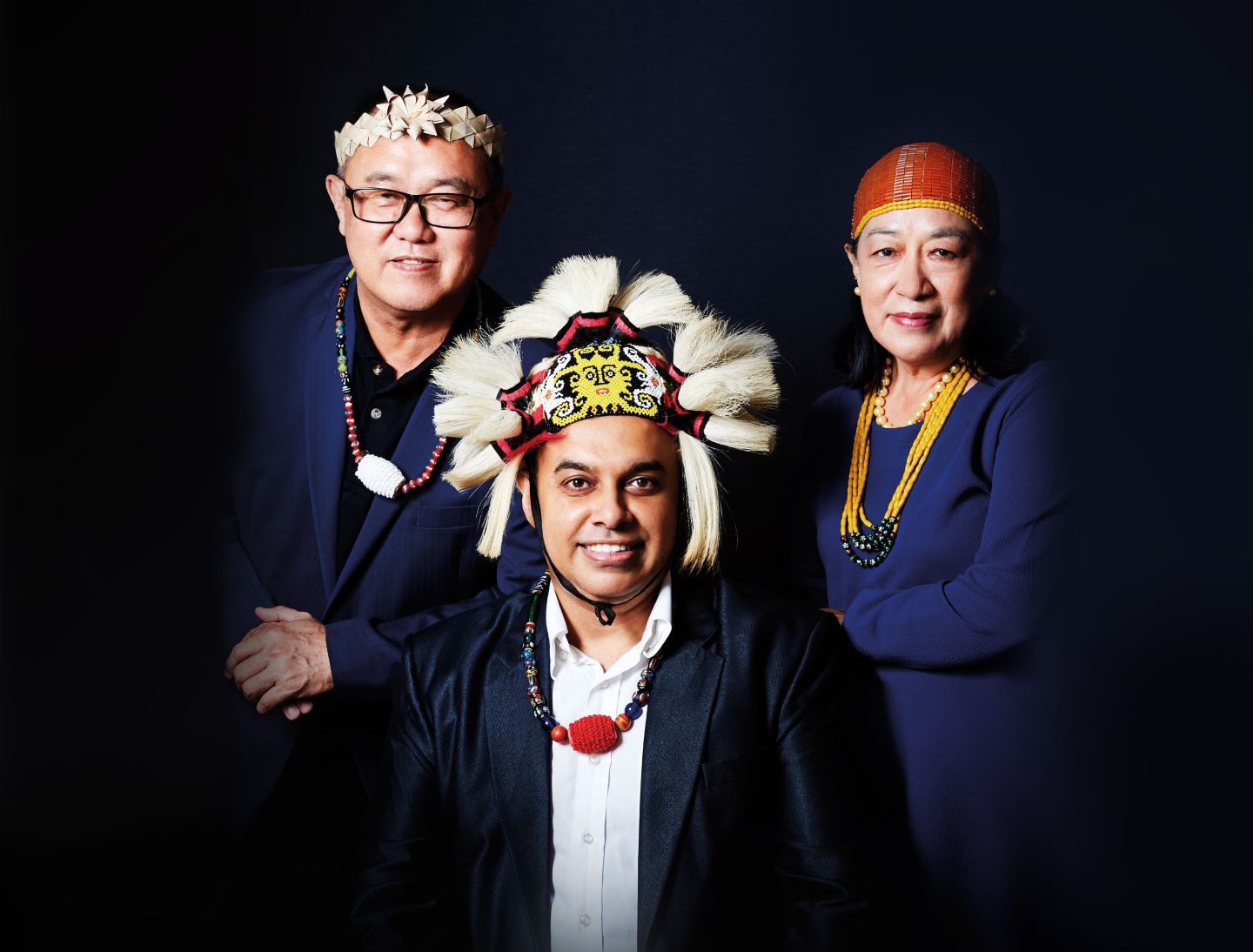
From left: Datuk Wong Yew Kai, Dr Andre Ratos and Datin Pearl Jai Mohan (Photo by SooPhye)
The plight of the Orang Asli, the indigenous communities who inhabit the diverse landscapes of Malaysia, presents a multifaceted challenge that requires urgent attention and concerted effort to conserve.
Despite their rich cultural heritage and deep connection to the land, they face numerous obstacles. Historically marginalised, they often find themselves in vulnerable positions with limited access to education, healthcare and economic opportunities. Most urban folk may also not fully comprehend their diverse cultures, languages and traditions due to a cultural disconnect.
Many a time, advocates are overwhelmed by the complexity of issues related to land rights, development and cultural preservation. And building trust with these communities takes time. If there is one man who made the effort to dedicate himself to the Orang Asli cause, it has to be the late Datuk Anthony Ratos.
“My father had a deep appreciation for the traditional arts of the Jah Hut and Mah Meri tribes, particularly their wood carving. He encouraged these communities to preserve and showcase their rich cultural heritage through this art form, fostering a sense of pride and identity,” shares Dr Andre Ratos when met recently. His late mother was the prominent doctor and philanthropist behind the successful Klinik Dr Leela Ratos dan Rakan-Rakan chain of clinics.
It all began in 1958, when Anthony, who was working with the Pahang Orang Asli Affairs Department, noticed Batin Hitam, the headman of the Jah Hut tribe, deftly carving a wooden doll from pulai wood to replace his daughter’s broken plastic toy. Witnessing his mastery with a rudimentary rattan-cutting knife, Anthony embarked on a mission to provide him with proper carving tools and entrusted him with the task of capturing the tribal pantheon in wood. This marked the birth of the revered Jah Hut wood-carving tradition.
image-29-03-22-04-42-8_1.jpg
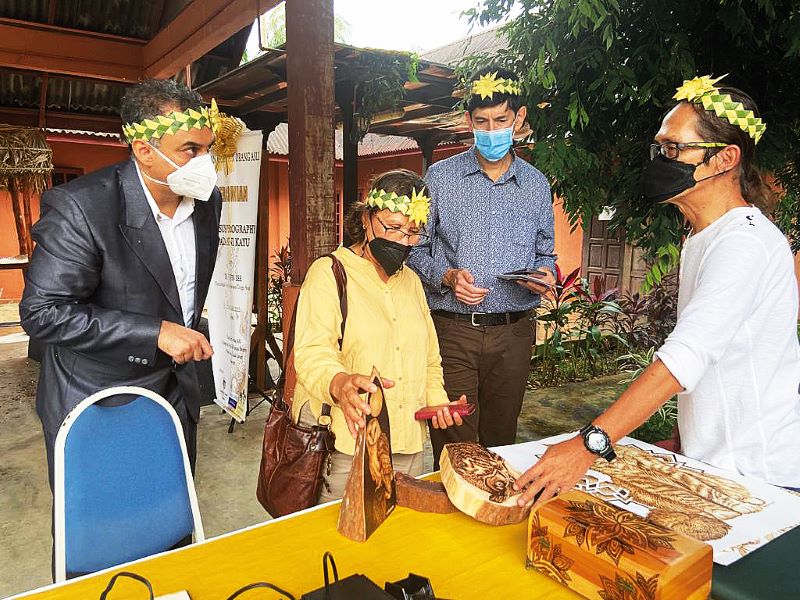
Anthony did the same during a visit to the Mah Meri settlement on Carey Island, Selangor, with remarkable outcomes. Within a year, the two tribes yielded a substantial collection of carvings that were put on display at the National Art Gallery, Kuala Lumpur, as well as in Australia, India and Germany.
“To give them a sense of economy and sustenance, my father avidly purchased their arts. He kept doing this until he had amassed the largest collection of Orang Asli wood sculptures in the world. They are now permanently placed at the National Museum,” says Andre.
“This was his proud moment of Malaysia finally recognising the beautiful arts and mysterious animism of the Orang Asli. Most are original and first sculptures made by pioneers like Mentri Bani, Batin Hitam, Pion and others. My father has given their legacy a permanent place in the museum.”
FIRST TOUCH
Anthony’s relationship with the Orang Asli goes all the way back to the late 1940s when he was a young boy, the son of a Goan musician who had travelled to Malaya from India. From the ramshackle huts in Bukit Ceylon, KL he would wander around the city and along Sungai Gombak. “Life was hard and it was here that he came across an Orang Asli who taught him the basic survival skills of fishing for ikan keli and foraging in the serene jungles of outer Selangor. A simple act of kindness by these peace-loving people made him forever indebted to them,” explains Andre.
_s1a9048a.jpg
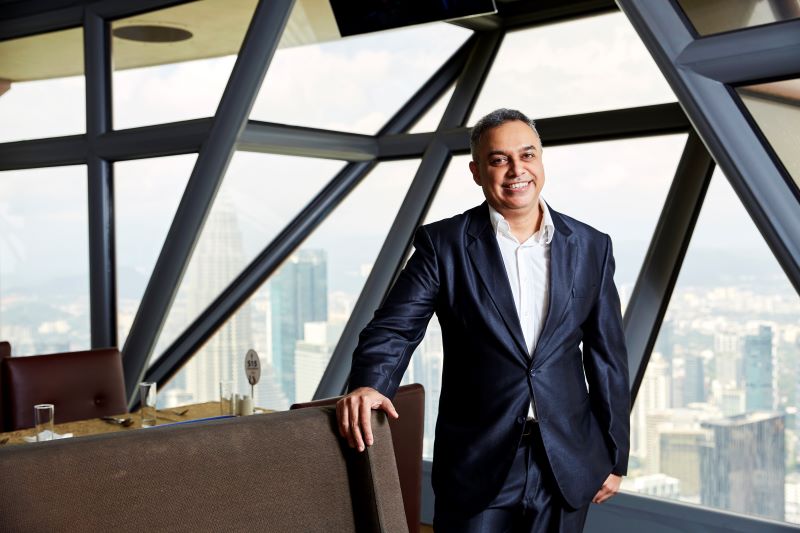
Anthony’s passion and curiosity about these people grew over time and that led him to write a thesis on them in 1952 while at Kirkby College in Liverpool. When teaching at Maxwell Secondary School in KL, he supervised a two-year field study of their culture conducted by senior students, resulting in a book and exhibition.
“Thereafter, he became a forest ranger under the then Orang Asli department and helped set up basic infrastructure such as outreach schools and access to health. As he entered the healthcare industry, his love for them never waned. He would frequently visit and conduct health camps with his doctors while purchasing the crafts made by them,” says Andre.
Not only that, Anthony sought local and international recognition for the Orang Asli and their wonderful culture and pushed for their arts to become a tourist attraction in light of Malaysia’s diversity. He would often encourage the press to write articles about their culture, plight and issues.
“We have numerous articles dating back to the 1960s. He championed scholarships, facilitated vehicles for easier access to schools, defended the Orang Asli in court and commissioned books on them. He always felt protective of them and their gentle ways.”
LEGACY FOR THE FUTURE
Yayasan Kesenian Orang Asli (YKOA) was founded in 2002 to continue the great works started by his father. Today, Andre runs the foundation with his fellow board of directors — Datin Pearl Jai Mohan (recipient of the Margarette Golding Award for her involvement in multiple charities) and Datuk Wong Yew Kai (executive director of Asian Kitchen Sdn Bhd and key partner of Atmosphere 360 revolving restaurant at KL Tower).
_s1a9065a.jpg
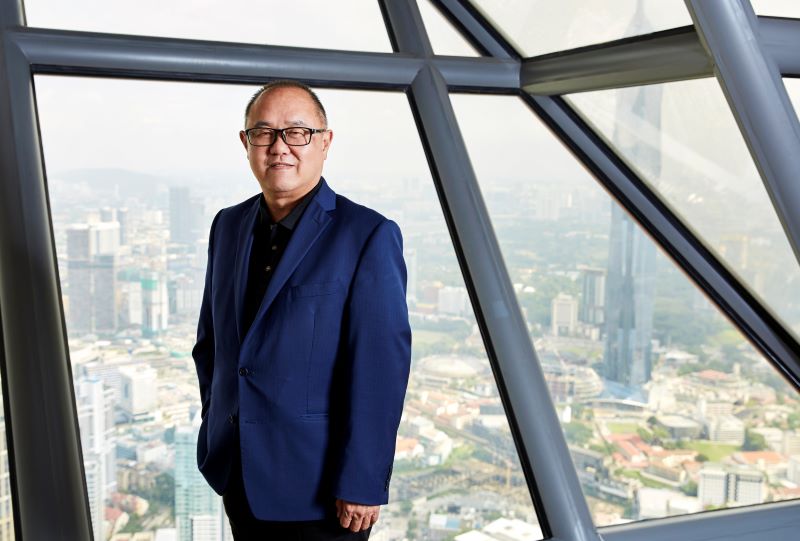
The organisation is committed to protecting, preserving and celebrating the cultural identity and heritage of the Orang Asli. “Continuing my late father’s legacy is both an honour and a responsibility. A key factor is always to think long term. For transition and a positive impact to happen, it takes time,” says Andre. “Respecting the indigenous means establishing trust and being aware of cultural sensitivities. I was taught that in order to achieve this, patience and understanding need to be cultivated.”
In this chronicle of continuity and benevolence, he emerges as a guardian of traditions and lives, weaving a seamless thread that binds past, present and future in an inspiring symphony of care and compassion. His role is to oversee the YKOA’s projects and initiatives, coordinate with community leaders and collaborate with other stakeholders to ensure the effective implementation of programmes. “Like any organisation, we face challenges such as limited resources, having to raise awareness of the importance of preserving indigenous cultures and navigating cultural sensitivities while promoting development.”
“Dr Andre spoke to me on several occasions about the work being done by YKOA. As an Orang Asal myself, I was appreciative of these efforts and didn’t hesitate to join when he asked. I bring along my knowledge of the culture and traditions of indigenous communities,” says Pearl, who is of Kelabit descent.
Last year, she and the team organised The Kelabits Live in Kuala Lumpur, for which the Rurum Kelabit Sarawak dancers and performers were flown in. The two-day event at Berjaya Times Square was “well attended by members of the public, many of whom had their first exposure to the community’s culture and dances. We hope to involve other ethnic communities in the future”, says the current vice-president of Malaysian Children’s Aid Society and an active member of International Inner Wheel Club. Pearl is also Andre’s mother-in-law.
“I believe it was fate,” says Wong sheepishly when asked about his involvement with YKOA. He owned a construction business until about eight years ago but in 2011, he had a project in Pahang where the development was surrounded by 12 Jakun villages. “We were faced with a huge obstacle as they objected to the project. We tried different ways to talk to them but finally I told them I would take them to Taiwan to show them how the indigenous people there have improved their lives and progressed with time.”
copy_of_img_5628.jpg
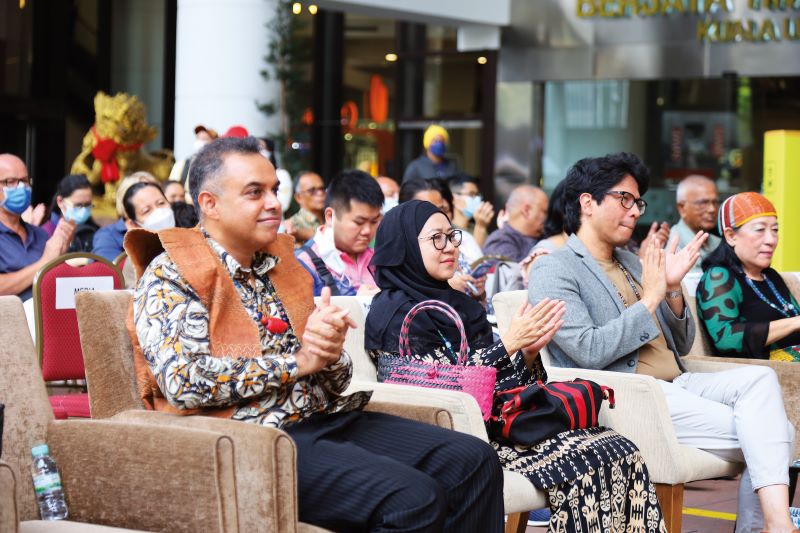
He believes everyone should be equal and that progress should include every Malaysian. “They finally relented and I took 12 of them to Taiwan. From sworn enemies, we are now friends. Ajis Sitin, the first Orang Asli to be the director-general of the Department of Orang Asli Development (Jakoa), is also a friend,” says the affable gentleman who is happily making his presence felt in the agriculture and F&B industries. He also owns Satay Putera Kajang.
Wong went on to take the Kadazan, Dusun and Murut folks from Sabah for the World Music Festival @ Taiwan and later the Lun Bawang from Sarawak.
“YKOA was dormant for a few years and I was introduced to Andre by my staff who knew his father well. We revived the foundation in 2015. That’s how this has become an important part of my life. I’m always touched by the simplicity of these folks; everything is as basic as it should be,” says Wong, who has been trying to introduce what he calls “Borneo Colours” for Malaysians to rediscover natural dye, “a heritage that has been lost over time”.
Although he plans to further his studies and do a doctorate in capacity-building for the poor in rural areas via an integrated farming system, he will always make time to support the Orang Asli cause that holds a special place in his heart.
STAYING HOPEFUL
Andre’s parents consistently encouraged him to contribute to the community, either through business endeavours or personal actions. This commitment was significant to him due to Anthony’s practice of taking him to various villages during his childhood. Despite not having as much experience as his father, he recognised the cultural erosion caused by modernisation from an early age. He felt a deep concern for the indigenous communities, especially the fringe dwellers, noting how their stories and traditions were fading away as they navigated life in a modern city environment.
_s1a9056a.jpg
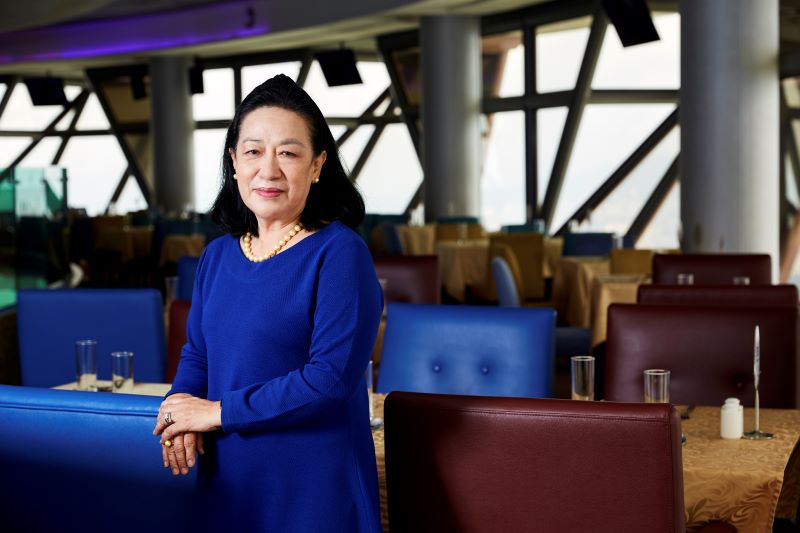
Transition is always tough, a vicious cycle in many circumstances. “Having a medical background and continuing my father’s work, I hope to identify the needs on a more detailed scale to explore long-term interventions. It is through careful understanding and dialogue that we can make a case to the respective stakeholders,” says Andre.
He hopes to contribute in his own way to ensure the sustainability of the empowerment and preservation of the Orang Asli’s unique traditions and to promote cultural understanding and appreciation.
“Malaysia is a beautiful multiracial country full of cultures that intersect and connect us in more than one way. We were all indigenous at one point of our origins and culture helped sustain us to this point. In reflecting this, know that our indigenous groups have deep-rooted wisdom, knowledge and cultural practices that are invaluable to our collective heritage. They deserve respect, recognition and support in safeguarding their traditions.”
It is Andre’s dream for YKOA to grow and expand its reach, positively impacting the lives of more indigenous people. “I envision a future where their cultural legacy is celebrated and they have increased opportunities for a better quality of life. As we grow, we want more indigenous representation on our board to take our direction forward. We want to inspire those who are passionate and have their feet rooted to the ground to use YKOA to channel positive change.”
WHAT IS TO COME
YKOA has some exciting projects coming up, including dance and cultural exhibitions and more educational workshops. Health is another sector the foundation is constantly looking into but it is personnel-, cost- and logistics-intensive, says Andre.
photo-2022-08-13-18-41-47-1_1.jpg
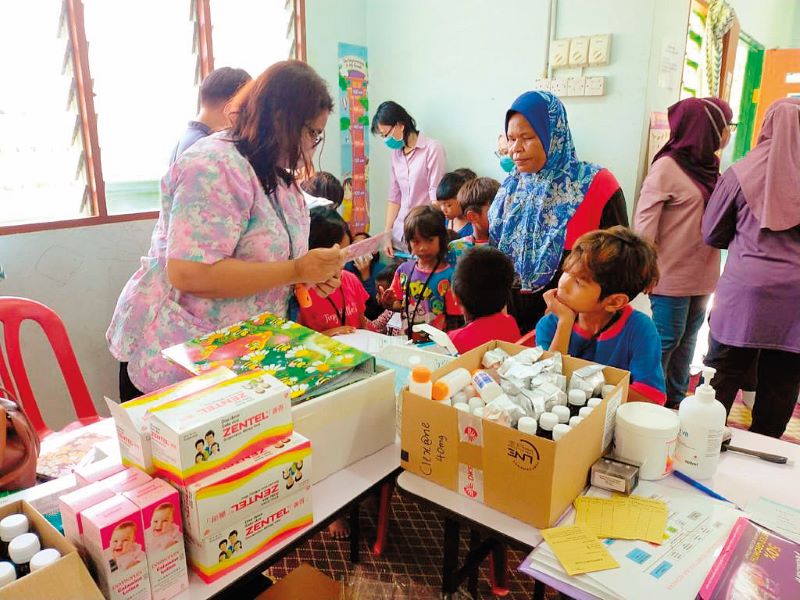
“So we are starting off with a basic needs assessment, like the one we are doing in Bario this September. Our nutrition and children’s project is still under evaluation — choosing an intervention that can be measured for success is important to us.” The medical outreach happening next month at the Kelabit Highlands in Sarawak will include basic health screenings and paediatric and orthopaedic evaluations.
YKOA has just received an invitation from the Ministry of Tourism, Arts and Culture to organise another The Kelabits Live this year. It will take place at the same venue, tentatively from Oct 12 to 15.
“We hope these initiatives will foster intercultural dialogue and sustainable development within the indigenous communities. Outside of YKOA, I continue to run the family healthcare business with my brothers and sisters. We focus on aged care and a group of clinics. I also do work for another NGO, Cheshire Home for the Disabled. This year is my 20th year with them and the disabled residents there are people I grew up with,” says Andre.
For the folks at YKOA, what they provide is a gift that keeps on giving.
This article first appeared on Aug 21, 2023 in The Edge Malaysia.


